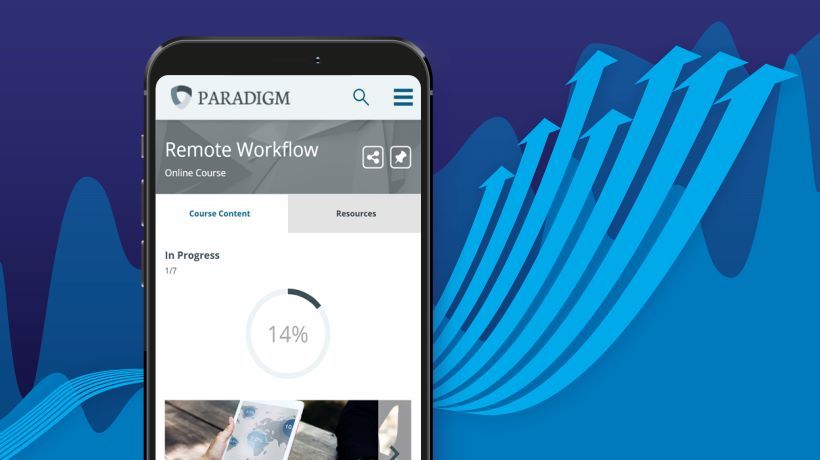The Future Of Corporate Training: Embracing Change
The corporate education and training landscape is tilting toward talent attraction and job satisfaction. This is a sign that employers have come to terms with the need to adopt a solid stance in favor of corporate education. Strong learning cultures shape up corporate policies. It eradicates wasteful habits that weaken business strategies and shutters an organization's pot of growth expectations. Capacity building, learning, and development have transformed into the fundamental pillars that hold up the fountains of sustainable corporate development.
Corporate leaders are aware that knowledge is the conventional Holy Grail in any industry and it can only be attained by adopting a corporate training culture with a revolutionary edge.
The eLearning Revolution
Computers were once the size of an entire house. Not many would have envisioned the rise of the internet when the HyperText Markup Language—HTML—was launched in the mid-1990s. From these humble beginnings came the birth of the World Wide Web - the global gallery of knowledge.
According to Amalgam Insights, the corporate eLearning platform is valued at hundreds of millions of dollars and is expected to rise as more and more organizations invest in in-house training to boost human capital productivity. The online learning programs provide an affordable way to teach employees an array of trade and work-related concepts. This includes teaching them how to embrace diversity and inclusiveness at the workplace. Corporate misconducts such as sexual harassment can also be dealt with effectively just as eLearning can be used to address corporate compliance, soft skills issues, and a realistic approach to challenges.
Talent Attraction And Retention
Corporate training has evolved into a job market incentive. Most talented people who are in search of employment look at it as a right alongside retirement benefits, occupational safety features, and health benefits. Effective training programs equip employees with rare knowledge, sharpens their hands-on skills, and improves their chances of rising up the corporate ladder.
Employers, on the other hand, benefit from skills and talent retention that reflect on their market popularity graph. Talent attraction and retention is currently a challenge for most organizations. According to recent poll findings by Gallup, many people are in search of job satisfaction and good remuneration packages. Many are subsequently in search of new employment opportunities that come with skills development packages. Others work two or more jobs to boost their work experience.
It follows that the digital platform is bound to play a significant role in the 21st-century job market dynamics because it provides an effective way to grant employees job satisfaction through increased productivity.
Curbing Skills Gap
Corporations don't have a choice when it comes to adopting tech evolutions. The dynamic aspects of technology have subsequently transformed corporations into life-long learners and the same applies to their employees. Digital transformations are creating skill shortages gearing organizations with a knack for surviving competitive markets. To attain this feat, they have to re-skill and up-skill their employees regularly.
According to Payscale, 33% of the organizations advertise open work positions at least twice a year. The employment gaps are often created by the search for high-end skills and competency, shifting market and industry dynamics. Some are forced into this situation by employee resignations owing to lack of professional skills and capacity building opportunities. Skills gap can be addressed with the help of eLearning, its microelements and the adoption of employee training curriculum that incorporate the use of versatile technologies. With eLearning that's spread across various platforms, it's possible to avoid talent loss and attain the HR objectives at a reduced cost.
eLearning - Millennials Vs. Past Generations
The overall global job market is likely to be taken over by the millennials by the year 2025. Employees from the past generations are expected to be less than 25% given the changing job market fortunes that favor employees with the urge to learn and develop their professional and tech-oriented skills. In comparison to the past generation workers, Millennials find it easy to take to continuous eLearning because they grew up using technology while past generation is more familiar with the practical way of doing things. Millennials also expect decisions to be based on knowledge. They can internalize huge chucks data, utilize just-in-time training in a fast-paced industry.
24/7 Learning And Work Culture
The global economy is a 24/7 machine with many parts in motion. Each employee is expected to hold his or her fort effectively and this has made eLearning a cross-border phenomenon that attracts Millenials and past generations' workers alike. A 60-year-old employee is, for example, expected to navigate modern-day mobile and computer applications with the efficiency of a tech-savvy employee in his or her 30s. Online learning platforms operate 24 hours shifts with instructor-led sessions that include mobile options. This means that one can catch up with the modern way of doing things anywhere at any time of the day or night. With eLearning, one enjoys a hybrid education system that incorporates video, audio and game-like training sessions that are meant to make learning new or complex concepts fun and easy to grasp.
Team Distribution
Conventional learning means walking into a classroom at a specific time, taking notes, asking questions and competing for the top grades at the end of the term. Technology has changed all these as eLearning enables one to join a global class of professionals from around the world. One can attend classes from the comfort of his or her home and enjoy being a part of globally spread out learning session. Dynamic chat platforms make the process interactive and enable those who lead busy professional, family, and social lives to keep up with the changes in their respective industries. Telecommuting is, therefore, the newly found eLearning brainchild that keeps people productive given its width and breath as a work and learning platform for a modern-day corporate worker.
Personalized Learning Experience
Off-the-shelf learning strategies are coming to an end. Ushering in the new age that delves deeper into customized learning expeditions. Work environment and organizational cultures, for example, are like human fingerprints or the zebra patterns - none is like the other. Corporate eLearning is subsequently designed for specific organizations.
Each eLearning curriculum is, therefore, designed to meet a specific needs and this cultivates skills and talent retention culture that benefits employers and employees in the same breath. The organization with the best eLearning and microlearning ideologies and structures usually carry the day as market leaders. This is because they deliver the promise of living up to the contemporary talented employees' work-related expectations.









